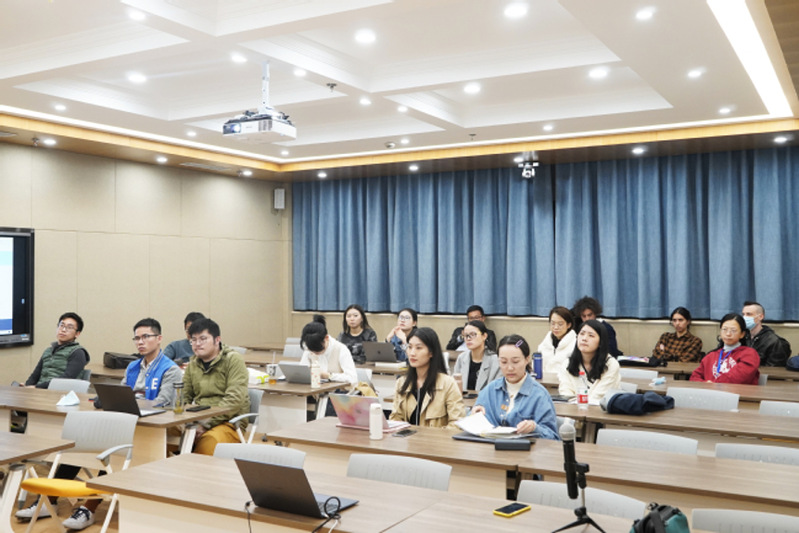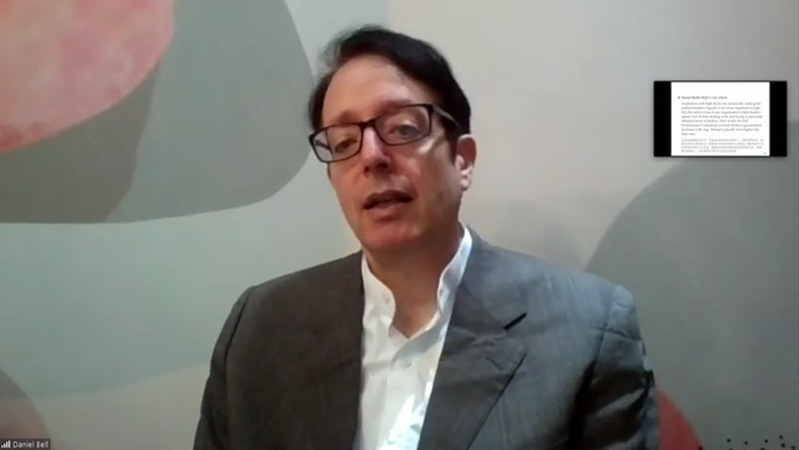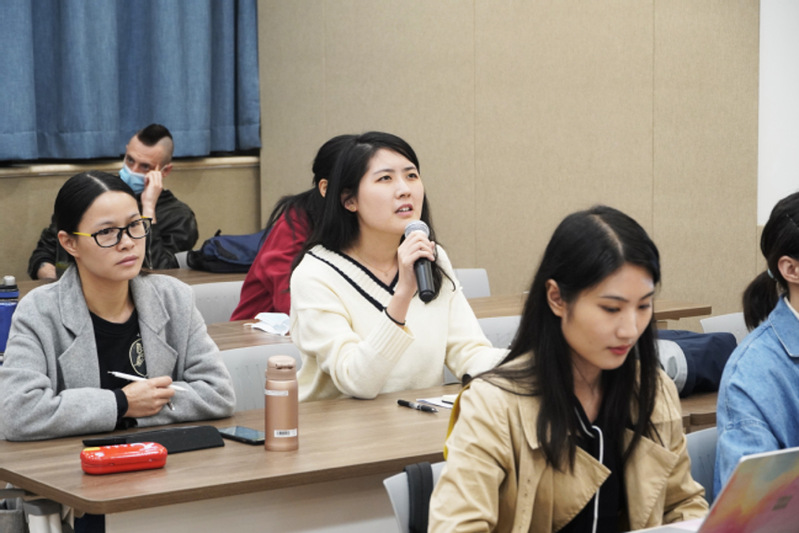Events



On 6th November 2020, the Institute for Global Public Policy (IGPP) held the 29th event of the Fudan-LSE Lecture Series. Professor Daniel A. Bell, dean of School of Political Science and Public Administration at Shandong University, delivered the lecture “Hierarchy Among Citizens: Serving the People”. Professor Yijia Jing, dean of IGPP, chaired the lecture.

Professor Bell is a global renowned philosopher and sociologist. His main research areas are comparative political philosophy, communitarianism and Confucian political philosophy. Topic of the lecture is based on his new book Just Hierarchy: Why Social Hierarchies Matter in China and the Rest of the World which is published by Princeton Press. The book discusses the unique Chinese political model formed under the background of Chinese traditional culture: meritocracy.
First of all, Professor Bell raised the question: what criteria should be used to measure the progress and regression of politics? He believed that compared with the democratic election model of Western countries, China is more suitable for the political system of “meritocracy”, especially the selection of high-level leaders, which requires more meritocracy. This is mainly because of China's national size, traditional culture and historical background, as well as its long-standing political experience and other specific circumstances. He said that meritocracy can be better compatible with grassroots democracy and political practice, but the advantages of meritocracy will not be effectively exerted for the competitive election of leaders at the highest level.

Then, Professor Bell analyzed several important qualities that a country's political leader should possess. Firstly, he believed that high intelligence and high emotional intelligence are essential qualities of a leader. In addition, leaders should also have good virtues. The most important quality of leaders is to have a sense of mission committed to serving the political community. As for the question of “how to effectively measure and best evaluate these qualities?”, he believed that it can be achieved through fair examination, government performance evaluation, improving the system and strengthening moral education.
Subsequently, Professor Bell analyzed the problem of defects in political meritocracy, and put forward corresponding improvement and corrective measures. He pointed out that it is necessary to limit the abuse of leaders' power. For example, China's anti-corruption campaign in recent years is a typical case. It is also necessary to adopt new thoughts and new mechanisms to improve the solidification of political hierarchy. Besides, guaranteeing the legitimacy of the meritocracy system is also necessary.
In addition, Professor Bell discussed the question of “how can democracy and political meritocracy be ideally combined?”. He said that in general, China's political model exhibits the characteristics of grassroots democracy and high-level meritocracy, and this mechanism is constantly experimented between the top and the grassroots. In the past 40 years, China's political model has played a role in poverty reduction, but the gap between reality and ideals still needs to be further narrowed in the future.
At the end of the lecture, Professor Bell further discussed the applicability of China's political model to other countries. He believed that this model is not replicable for some smaller countries with frequent government changes and is difficult to be implemented in reality. However, China can help other countries to establish relevant knowledge systems and mechanisms to support the realization of political meritocracy by exporting China’s experiences.
